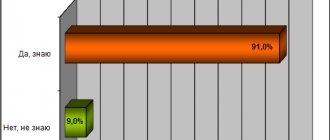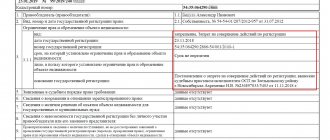How to find out about inheritance
Often close relatives try to hide the fact of death from other potential heirs in order to receive the entire inheritance of the deceased. Especially when it comes to real estate, and other relatives live far away and do not have the opportunity for frequent visits.
In this case, when the actions of relatives do not inspire confidence, you need to:
- Call your relatives at least once a month so that in the event of death you do not miss the deadline for accepting the inheritance;
- If a relative is seriously ill, then it makes sense to contact a notary at his place of residence.
As soon as you find out about the death of a relative, immediately contact the notary office at the place of his last residence. You need to notify the notary about the death of the citizen and present him with the following documents:
- Passport;
- Death certificate of the testator;
- Confirmation of relationship;
- The will, if found.
However, the easiest way to find out about the inheritance is to people close to the deceased who lived with him or were in close contact with him. Therefore, you should always maintain good-hearted relationships with all relatives, and not just with elderly relatives.
Ways to find an inheritance
There is no complete information base or any institution where it is possible to obtain accurate and complete information about what property the deceased has. And this is precisely why there are several ways to clarify with a notary exactly what property rights a deceased person has.
By last name
If we consider the search for a person’s inheritance by his last name, then we can distinguish several methods, each of which has its own nuances and characteristics. And, as practice shows, this is far from the most effective option, so it would not be amiss to use it as an additional, and not the main one. But if you delve into the essence and turn to specialists, the information will be as useful and informative as possible.
Through the notary database
The notary database, presented online, is a source of useful information and diverse information that can provide answers to all questions. It is important that relatives who know the personal data of the deceased can request data. You may also additionally need to provide the passport details of the deceased and clarify his place of registration. The “Search for Heirs” service is a special database presented on the Internet in the form of a website, which provides the opportunity to ideally get answers to all questions regarding the size of a person’s inheritance. The fact is that all data on inheritance records upon the death of a person is entered there.
Read also: How to enter into an inheritance and how much it costs
Any notary
The ideal solution would be to use the services of notaries who have the ability to use the direct system of the Unified Information Notary, therefore, accurate and detailed information is provided to all clients. It is important that after the death of a person, all his property rights are assigned by notaries to separate categories, so when a person who wants to receive such information applies, the search will take a minimum of time.
Through a specialized organization for searching for inheritance
If you don’t want to waste time and effort on contacting notaries yourself, then you can use the services of special organizations that are ready to handle the search for an inheritance for a small fee.
Abroad
If the property of a deceased person is located outside the country, then when searching you need to take into account the specifics of the legislation where the objects are registered. This will prevent inconsistencies and legal problems. And therefore, the best solution would be to use specialized companies for searching and compiling information about foreign real estate.
In banks
You can obtain information about the bank salary of a deceased person only if you contact a notary, who, through a careful search and preparation of appropriate documentation, will be able to send a mailing to banking institutions to receive a response. But it is important to remember that in addition to the legislative transfer of property, there is also a division based on the presence of a will, so the notary must consider the features of the property after it has been identified in the bank.
How do I know if I am an heir?
If the testator did not leave a will, the inheritance will be distributed among the legal heirs.
In this case, you need to check whether you are the legal heir of the deceased. If yes, which of these queues are you in:
| First of all | Wife/husband of the deceased, his children and parents; By right of representation there may be grandchildren and other descendants of the heirs indicated above. |
| Second stage | Siblings, grandparents, nephews/nieces; Half-siblings are also allowed |
| Third stage | Blood aunts, uncles and their descendants, i.e. cousins of the deceased |
| Fourth stage (most rare) | Great-grandparents |
| Fifth stage | Children or descendants of nephews/nieces, as well as siblings of grandparents |
| Sixth stage | Descendants (children and grandchildren) of nephews/nieces, children of cousins, children of grandparents' siblings (great aunts and uncles) |
| Seventh stage | Child of wife or husband (stepson or stepdaughter), stepfather, stepmother |
| Eighth stage | Disabled persons who were dependent on the deceased for a period of at least 12 months before his death or who lived with him, and who are not included in the first seven lines of inheritance. |
If you are on this list, then you have the right to know who the heirs of the deceased are and other information on the inheritance matter. If you do not fall into one of these categories, then the notary will not be able to provide you with information on the case.
Unfortunately, in Russia there is no provision for the creation of a special database of people who have drawn up and certified their will, which significantly worsens the situation of the heirs.
If the testator left behind a will, the notary is obliged to notify all heirs about it. There is no need to find out anything additional.
How to find out if there is an inheritance abroad?
In a situation where a written expression of will is properly executed, the notary who is responsible for conducting the inheritance case is obliged to contact all the persons indicated in the document. The usual contact details are indicated there.
This is also done by special departments whose activities include checking and opening inherited property abroad. With the help of such colleges, any citizen can obtain information: whether he has inherited property abroad. Among other things, these institutions provide services for finding heirs to transfer the relevant certificate to them.
At the same time, you need to understand that the registration procedure in other countries can be implemented using various options:
- in accordance with the provisions of the Civil Code;
- in accordance with the legislative norms of the state where the testator’s property is located;
- according to the provisions of local regulatory legal acts relevant in the area where the relative died.
The procedure for entering into inheritance rights and obtaining a certificate abroad in most situations complies with Russian standards. The most common exceptions are in the clause regarding the amount of state duty.
How to find out whether there was a will for an apartment
The main difficulty after the death of the testator is to find out whether there was a will. In addition, almost immediately the deceased has many relatives who want to know about the inheritance and heirs, secretly hoping that they will be able to grab a part of it.
The main obstacles to making a will:
- The desire of unscrupulous relatives who found the will earlier to conceal it or destroy it;
- Lack of certainty as to whether there was a will at all;
- The executors of the will and other persons knowledgeable about the document cannot reveal the secret of the heir and his existence in general.
To find out whether there was a will, close relatives try:
- Check the personal belongings of the deceased;
- Find it in the apartment of the deceased;
- Contact a lawyer or notary with whom the testator worked during his lifetime;
- Talk to other close people of the testator.
As a rule, the notary who certified the will recommends that the testator store it in one of the following ways:
- Store at home in a sealed envelope;
- If the will specifies persons who do not live with the testator, then it is more appropriate to store the will in a notary's office.
A will can only be opened after the death of the deceased and in the presence of witnesses.
In any case, the will is always drawn up in two copies, in case of unlawful actions on the part of the persons concerned. Therefore, it is advisable to find out during the testator’s lifetime which notary services he prefers to use, so that with a 99% probability, after the death of the testator, he can contact the right specialist.
How to check if you are an heir?
There can be different situations in life. For example, one of your relatives assures you that the apartment was left to him and not to you, and you take his word for it, but time passes and you begin to doubt. Or your great-aunt died, and you assume that she should have bequeathed her property to you, because there are no other relatives. How to check your guesses? You need a notary at the place of residence of the deceased, he will help you find out everything. It is possible to find out whether you were left an inheritance or not only after the death of the testator, not earlier. The notary also has the right to deal with this matter only after 6 months from the date of death of the citizen. This period is given so that distant relatives can show up and can also lay claim to the property. The inheritance will be formalized only after all the heirs have been identified and all the nuances have been completed.
In any case, only a notary will help you clarify this issue. When registering and receiving an inheritance, it is better to immediately contact professionals who know the intricacies of this process.
How to submit a request to the notary chamber?
To find out about inheritance, you can contact:
- To close relatives of the deceased, neighbors or friends to find out about the death of the testator;
- To the notary whose services the deceased preferred to use or at the place of his last residence;
- To the notary's office.
To find out about the inheritance and death of the testator in a short time, you can directly contact the notary chamber of the city where the deceased lived.
The Notary Chamber is the highest governing body for all notaries operating in a constituent entity of the Russian Federation. This is where they send data on all registered documents, including wills.
There are two ways to submit a request for a will:
- By mail, sending photocopies of documents (passport, death certificate, etc.) and an application to search for a will;
- Personally, by arriving at the notary chamber, which controls the activities of notaries in the city of residence of the testator.
To apply you will need to collect the following documents:
- Personal passport, if possible a copy of the deceased’s passport;
- Death certificate of the testator (obtain from the Civil Registry Office);
- Proof of relationship: Birth certificate;
- Marriage certificate;
- Other documents.
If you start collecting papers in advance and submit a request to search for a will as early as possible, the more time the heir will have to formalize the acceptance of the inheritance.
Who is responsible for searching for heirs?
Property division agreement
According to the law, after the death of a loved one, relatives are required to contact a notary office, presenting certain documentation. And when all interested citizens are announced, the notary must not confirm the presence or absence of other successors.
Important! The period of entry into legal powers for public heritage is 6 months. It is believed that this period of time is sufficient to declare other legal owners of the property of the deceased.
If during his lifetime the testator writes a will, designating each citizen and the share of the inheritance, then everything is divided in the described order. However, in a situation where registered family members are not announced, the notary office has a duty to organize a search for heirs whenever possible, since the law does not oblige notaries to search for successors.
The judge and his assistance in obtaining an inheritance
Finding heirs is considered the most important action for every other recipient of property. This is due to the fact that they are interested in sharing all the values right there. When a period of six months passes, then even in this situation, other heirs can be announced at any time. They will demand the return of property already transferred to other citizens.
On a note. The restoration of the period occurs with the help of the court, for which the relatives are able to present evidence that the omission is due to the fact that no one told them about the death of a relative. Even when the legal successors have already filed or disposed of another method of obtaining real estate, they have to pay the required amount of funds to their relative.
welcome to reality
Before you try to learn anything about probate, it's helpful to understand a few things. Legal advice from Legal Rights advises:
Firstly, if somewhere there is a relative who, in principle, is capable of bequeathing something to us, and we know nothing about it, then this relative will definitely not die from an excess of our attention. And if so, he is unlikely to mention us in his will.
Secondly, around any owner who is capable of bequeathing something more or less serious to relatives, these relatives form a dense and impenetrable ring and are quite capable of hiding both the fact of the existence of an inheritance and the fact of the death of the testator - so that unwanted competitors do not reduce their own share.
Of course, they are mistaken in their ignorance: of course, it is necessary to enter into an inheritance within six months after the testator leaves this world, but if the bypassed heir suddenly finds out about this, turns to the court and provides it with evidence of untimely application - by the decision of this authority he will successfully will restore the deadline for filing your own application.










